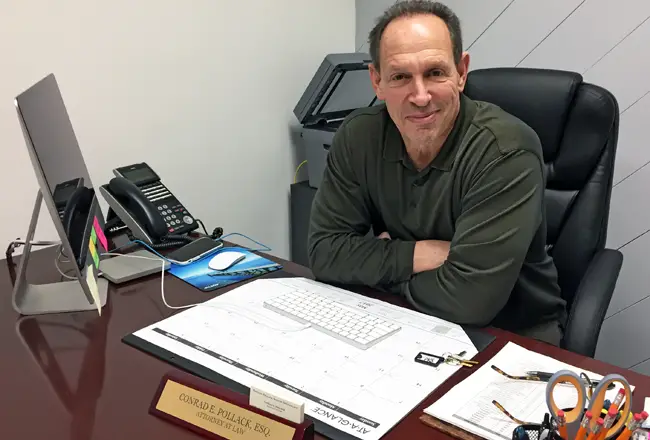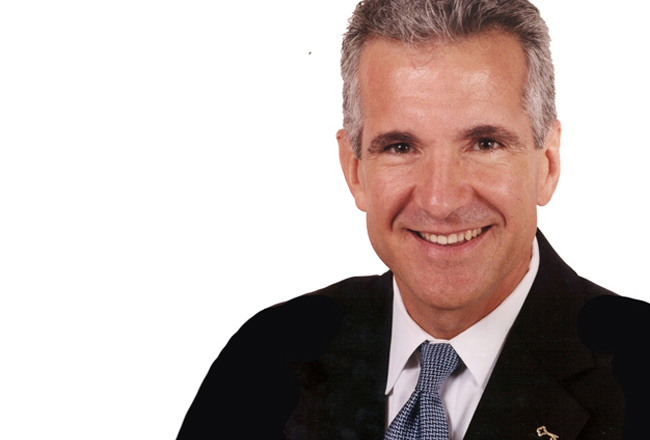
A New York City firm focused on immigration law has opened a Peekskill office to better serve its clients living in Westchester County.
Though still awaiting approvals from the city to erect the firm”™s sign on the front of its new offices at 906 South St., law firm Pollack, Pollack, Isaac & DeCicco LLP has begun seeing clients in Peekskill.
“Just today, I had a guy come in who had another lawyer who told him, ”˜Go ahead and apply for political asylum,”™” said Conrad Pollack, a managing partner and director of the firm”™s immigration department. “A year ago, (that would have been) OK. I don”™t necessarily disagree with that, but today, that”™s a very different proposition, because you”™re going to get denied and with our current attorney general, you”™re going to get deported.”
Instead of applying for asylum, the client was eligible to apply for a green card, Pollack said. “As a result, he”™s now changing course. And he and his wife both will probably have a green card within the next year and a half, two years,” he said.
For Pollack, who has been a practicing immigration attorney for more than three decades, this client”™s case was nothing new. “That”™s standard stuff,” he said. “I see that kind of stuff all the time.”
In leading the Manhattan-based firm, Pollack has followed in the footsteps of his late father, Arthur. “I grew up not really thinking anything else than that I was going to eventually become an immigration lawyer and work for my dad,” he said.
Arthur Pollack, who was born in the U.S. but moved to Germany at a young age, had a linguistic gift and spoke more than a dozen languages fluently. He served in World War II as a paratrooper and later as a translator for the Nuremberg Trials, according to his son. “My father was a smart guy, he was an extremely intelligent man,” he said.
Though Arthur originally focused on insurance law ”” “he hated it,” Pollack said with a laugh ”” his proclivity for language led him to immigration law in the 1960s.
“Some Dominican guy walked into his office, which was in Brooklyn at the time. The guy had an immigration case and my father spoke Spanish. Not only Spanish, but he spoke with a Dominican accent.”
In 1965, Congress passed the Hart-Celler Act, which abolished a quota system based on national origins that had served as America”™s immigration policy since the 1920s. The act also ushered in a new wave of immigrants into the country.
“It was just fortuitous,” Pollack said. “He became ”˜the man”™ with Dominicans and Haitians in particular. He worked six days a week and had crowds of people in his office. He was one of the pioneers (in the field of immigration law) and made it into a very nice practice.”
Though Pollack had spent his life looking forward to working in immigration law alongside his father, unforeseen circumstances would cut short their time together.
“Unfortunately, he died soon after I graduated law school. Basically we worked together for six months and he passed away, and the whole practice was thrust on me when I was a 26-year-old kid.”
Becoming the head of a law firm so shortly after graduating was “interesting,” Pollack said.
“It was hard, very hard for the first couple of years. It was very difficult for me, but in retrospect, I think there”™s something to be said for trial by fire.”
Pollack said the firm had considered opening a second office in northern Westchester for some time.
“We have a lot of Ecuadorian clients up here in Ossining, Peekskill, Croton, Tarrytown,” he said. “Now, instead of my clients having to come all the way down to Manhattan to see me, I”™m coming to them. It”™s bringing the mount to Mohammed.”
After touring the office space, which is near the corner of South and Division streets in downtown Peekskill, Pollack said it was “perfect.”
“It just worked out,” he said. “Also, given the nature of what”™s going on these days with immigration and politics, everything kind of came together.”
Because of the current state of immigration in the country, Pollack also cited a strong need for sound legal services in the area.
“The quality of immigration legal advice, it could be better in Westchester,” he said. “There”™s a reason why I probably get more clients that already have lawyers than don”™t.”
Pollack said the immigration law field is “very ripe” for new attorneys to jump into.
“You have a lot of people, maybe they mean well, but they don”™t know anything,” he said. “As a result, a lot of immigrants get screwed. Maybe it”™s unintentional, but Immigration (U.S. Immigration and Customs Enforcement) doesn”™t care.”
Because of their desperation or lack of knowledge, Pollack said many immigrants can find themselves taken advantage of or “ripped off.” He recalled many clients who had previously paid a lump sum for legal advice, only to return weeks later to find the offices of their attorney vacant.
“That happens a lot,” he said. “I think people take comfort in the fact that I”™m not going anywhere. My father did it before me. My son will probably be doing it after me.”
Pollack stressed that immigration law is not for every lawyer.
“It”™s on one hand difficult because you”™re dealing with people under a lot of pressure,” he said. “On the other hand, when you”™re successful especially, there”™s a level of satisfaction it brings as well.”
For Pollack, the current state of the country”™s immigration policies, though different from the previous two administrations, is “not necessarily new.” Pollack cited the raids and immigrant detentions that were commonplace in the 1970s and 1980s.
“The stuff that”™s going on today has happened before, it just hasn”™t happened lately,” he said. “So I”™ve seen the ebb and flow. So, No. 1, I”™m not shocked, and No. 2, I”™m not unprepared. We”™ve been there.”
Still, Pollack believes immigrants have “a legitimate reason” to be fearful.
“The official line is, ”˜We”™re just going after the bad hombres,”™ quote unquote,” he said. “That”™s not true. Its whoever they come across.”
Pollack cited the recent news of Immigration and Customs Enforcement agents lurking near courthouses in an attempt to arrest immigrants who are in the country illegally.
“It”™s just crazy,” he said. “They may be removing more people than had been removed previously, but they”™re not going to solve the problem, because they”™re not going to remove 11 million immigrants. Eventually, they”™re going to realize that, but how long it takes, who knows.”
















